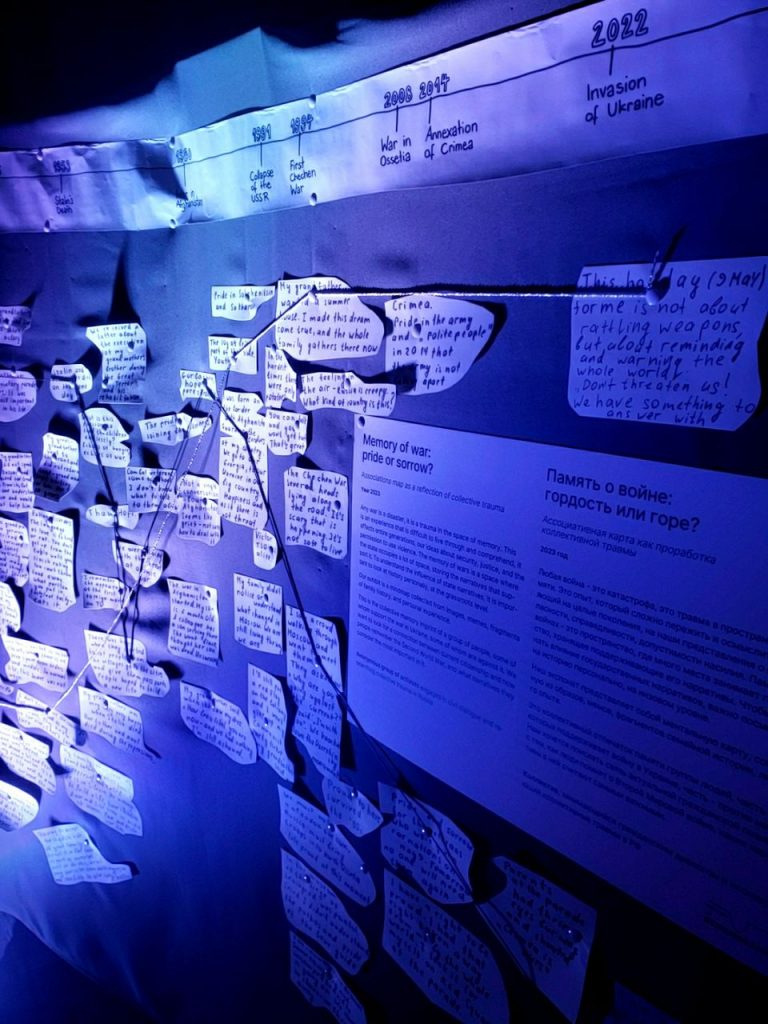Any war is a disaster, it is a trauma in the space of memory. This is an experience that is difficult to live through and comprehend, it affects entire generations, our ideas about security, justice, and the permission to use violence. The memory of wars is a space where the state occupies a lot of space, storing the narratives that support it. To understand the influence of state narratives, it is important to look at history personally, at the grassroots level.
Our exhibit is a mindmap collected from images, memes, fragments of family history, and personal experience.
This is the collective memory imprint of a group of people, some of whom support the war in Ukraine, some of whom are against it. We want to look for a connection between current citizenship and how people remember the Second World War, and what narratives they consider the most important in it.

In the picture you can see a lot of paper pieces pinned to a dark fabric. On the papers the quotes of people, who took part in the online workshop are written. Some of the papers are connected with a string, they form one type of narrative (which is either pride or sorrow). At the top of the papers with quotes there is a timeline with dates on it. It starts in 1941 and ends in 2023. AT the very right side there is a description of the exhibit in English and Russian language. The background light of the picture is blue.